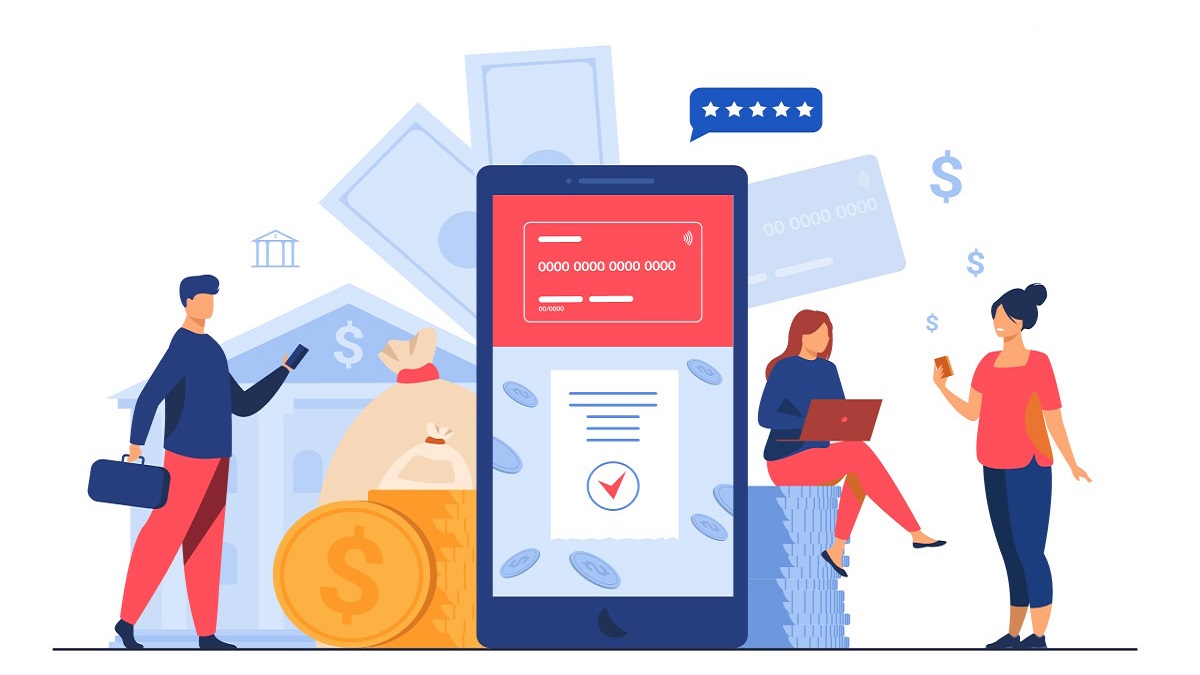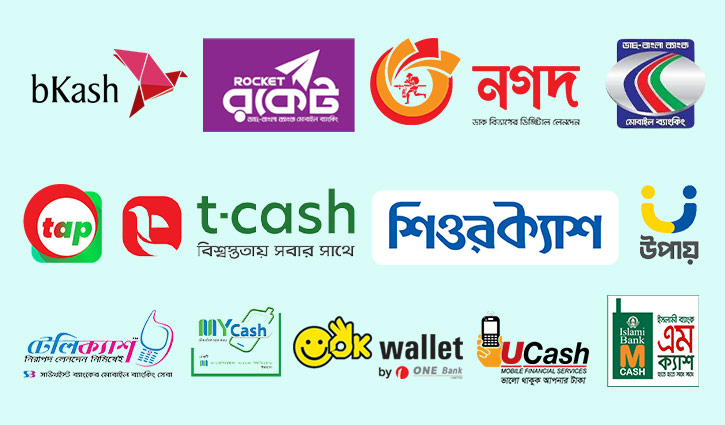Formalizing more people in the economy through policies
BY Lubaba Mahjabin Prima and Kamrul Hossain Shuvo
August 08, 2025

Financial inclusion, the state of having access to valuable and affordable financial products and services, is essential to tackling poverty.
Owning a bank account or having access to mobile banking facilities can be the first step towards financial inclusion. This enables an individual or a business to have a safe store of deposits, a non-exploitative source of credit, and a useful medium of transactions.
Access to financial services allows individuals to protect themselves against income shocks. Mishaps related to health problems, natural disasters, and other similar events typically have the most severe impacts on the poor, who often have no safety nets to fall back on in such cases.
On the other hand, debts and loans are often sources of worry for the poor, who lack formal institutions to support them.
As a result, they often rely on informal and local sources for such purposes. These local moneylenders charge exorbitantly high rates and employ deliberate schemes to keep vulnerable segments of society indebted for years, and even generations.
Often, the poor are unable to chalk out long-term goals and plans, specifically due to not having a uniform, organized, and resourceful medium of depositing savings and/or taking credits.
Although financial inclusion has steadily improved, with the number of adults without access to an account declining from 2.5 billion in 2011 to 1.4 billion in 2021, this still means that close to one-third of adults across the globe remain unbanked.
About half of them included women from poor households in rural areas or out of the workforce.
On the other hand, the disparity in financial inclusion is evident across countries; it is universal in high-income economies, while virtually all unbanked adults reside in developing economies.
Remarkable success in the country
Bangladesh has achieved significant success in financial inclusion. As a successful example of microfinance, many women in rural areas have benefited from financial inclusion.
Digitized payments across several industries have ensured that millions are involved in the financial sector. The expansion of the safety net over the years has increased inclusion. The boom in e-commerce and mobile banking services has also expanded the horizon in this regard.

According to the Household Income and Expenditure Survey (HIES) 2022, 21.30% of households deposited money in a micro/financial institution during the data collection period. This is much higher than it was in 2016 and 2010, 15.09% and 14.51% respectively.
Despite this, 34.4 million women and 22.9 million men across the country were excluded in the year 2022, as reported by the World Bank.
Policy reforms required
Expanding financial services in rural and remote areas and formalizing non-firm sectors can be key ways to incorporate more people into the financial realm. The existing barriers in terms of age and education, which manifest as adult illiteracy, inequality across socioeconomic strata, etc., must be eliminated.
Policy actions that have a large-scale impact are deemed effective in increasing financial inclusion in a country. Digital IDs mandated by the government can be the stepping stone.
An expanded social safety net or a leveraged payment from the government would require many to engage with formal financial channels, thereby further expanding digital inclusion.
Governments must allow an innovative system of technological progress within the regulatory framework. Being open to digital services would create an atmosphere of mass use of financial services.
Financial service providers must stay vigilant against vulnerabilities and risks. They should take measures to mitigate risks coming from limited resources, a coordination gap among stakeholders, an incompatible institutional framework, insufficient technical skills, and other factors.
Financial inclusion must incorporate regular assessments of existing policies and a coordinated approach to data-driven policymaking. It is crucial to recognize the vulnerabilities of the marginalized and ensure that consumer protection is not compromised for the sake of inclusion.
Focus on literacy
Financial literacy is the only alternative to spreading financial inclusion. Although the spread of the latter, in a virtuous cycle, has expanded the former, the efforts must not be limited by existing socioeconomic barriers.
Financial literacy initiatives require innovative tools and appropriate media (digital and/or material) to reach the target people efficiently.
Both communication channels and tools are critical in reaching target groups, considering their age, gender, level of education, geographical locations, and other factors. In this regard, the methods to reach the marginalized working class should be through their workplaces and must be attuned to their economic aspirations.
Similarly, the educated youth’s ideas, which focus on advanced technological channels for investment and financial capital gains, must be addressed to mitigate market risks.
The School Banking programme by the Bangladesh Bank is one such visionary initiative that has enabled children to access financial services and foster a sustainable structure for a better financial ecosystem.
With private banks facilitating over 70% of nearly five million active school banking accounts, significant progress has been made towards achieving gender parity.
However, regional differences exist, with rural accounts reflecting the financial challenges of marginalized communities.
The age-old solution: awareness
A sustainable future for the financial realm requires that participants are informed and aware enough to make their own choices. This requires both public and private sector involvement, with banking advisors empowering citizens.
The private sector has to be kept in balance in this regard, so that private profit-driven incentives do not risk potential market failures.
On the other hand, the government must invest in its capacity building, enhancing its ability to stay updated on the latest financial products and devising policy guidelines accordingly.
Hence, the government should implement training programs in data science, cybersecurity, and software development.
There exists significant inequality in digital literacy, so special attention must be paid to rural areas when campaigning to teach people how to use digital services efficiently.
Supporting the process
Ensuring widespread access to the internet requires increasing mobile and broadband connectivity, especially in underserved and rural areas.
Despite the progress made in several aspects of its ICT revolution, Bangladesh has yet to enhance mechanisms for data governance. Bangladesh should enact a comprehensive data protection law that complies with international standards to ensure the safe and ethical use of personal information.
The prioritization of policies must be attuned to the fact that structural problems exist in terms of digital infrastructure in the country.
With 41% of urban residents and 26% of rural residents in Bangladesh using smartphones, and daily internet usage at 40% in cities and 24% in villages, the rates remain extremely low when compared to countries of similar socioeconomic strata.
The regional differences, on the other hand, echo the problems of inequality in terms of digitization efforts and digital literacy. These problems create barriers to financial inclusion.
Innovation does not occur in a vacuum and requires collaboration among multiple entities, including the government, domestic and foreign IT firms, non-profit organizations, and others.
This would allow them to co-develop public services, financial resources, and technical know-how.
Innovation hubs that promote cooperation and talent pipelines through partnerships between corporate companies and academic institutions can provide multifaceted benefits.
Implementing these measures would enable Bangladesh to establish an inclusive and resilient financial system. Only then can the country achieve better governance and wider access to basic services.
Lubaba Mahjabin Prima is a research assistant at the South Asian Network on Economic Modelling (SANEM).
Kamrul Hossain Shuvo is an implementation manager at Reimagining Industry to Support Equality (RISE).
Tags:
Most Read

Electronic Health Records: Journey towards health 2.0

Making an investment-friendly Bangladesh

Understanding the model for success for economic zones

Bangladesh facing a strategic test

Bangladesh’s case for metallurgical expansion

How a quiet sector moves nations

A raw material heaven missing the export train

Automation can transform Bangladesh’s health sector

A call for a new age of AI and computing
You May Also Like
